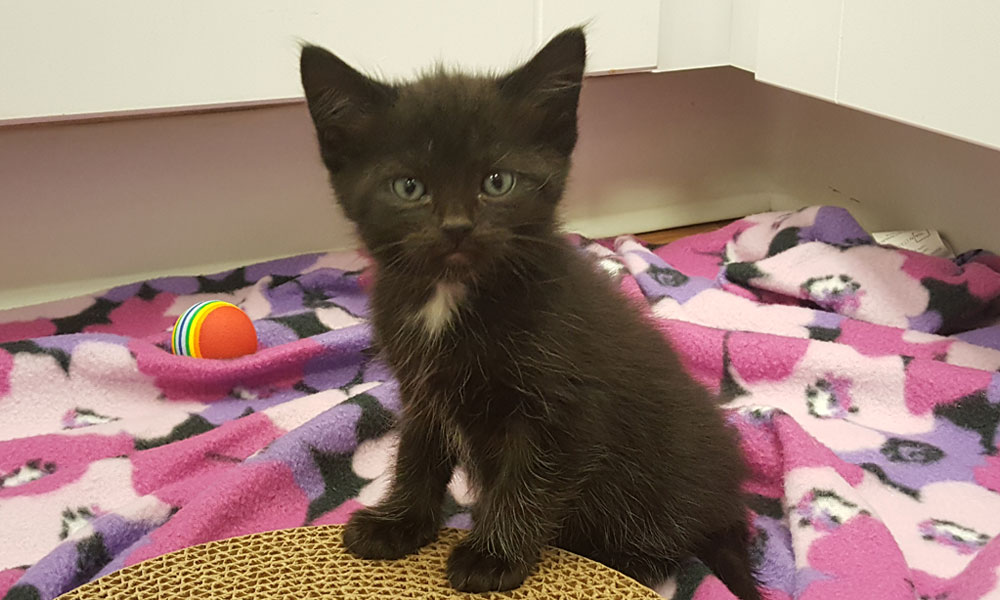Picking the right cat to bring into your house is a decision that shouldn’t be taken lightly. The new kitty will become another member of your family for the subsequent 10 to 20 years. You will be responsible for its food, health and overall care for the rest of its life.
The problem is that there are so many different cats out there to choose from. Cats of different breeds, different ages and different personalities with each meshing differently with different families and situations. Here’s some tips as you think about adding a new furry family member to get your 2017 started!
Should you get a kitten or adult cat?

One of the first things to consider is the age of the cat that you will adopt. A lot of this boils down to your individual lifestyle and expectations.
Younger cats tend to be more energetic and require more attention and stimulation. Most kittens are curious, playful and often mischievous. They require careful supervision to keep them out of trouble. So if you are out long hours for work or travel often, a kitten may not be the best fit for you.
Adult cats require less supervision but definitely still require play and environmental stimulation like cat trees and access to windows. If you tend to be gone longer hours during the day, an adult cat may be a better option for you.
Senior cats can be a great fit for people who work from home or retirees. These cats don’t need as much play, but do still need environmental stimulation to stay active. Additionally, you’ll want to think about the cost potentially associated with senior cat care, disease management, or end of life care. When you adopt a senior cat, you’re helping them live the rest of their lives in comfort and love – and surely there’s no better reward than that.
What kind of personality should you look for?
Choosing the right cat personality is very important when you’re looking for a new furry family member. No two cats are exactly alike, even if they are from the same breed or come from the same litter.
You’ll find some cats don’t want to be picked up while others love it. Some want to play all the time and others don’t seem to like any toy you bring home. As you look for potential new furry family members, spend some time with the kitty if you’re able to. Try to get a feel for the cat’s personality and make sure it jives with your own. Usually they let you know when the bond is right!

If you have kids in your home, make sure you help them understand at a young age how to approach cats and pet them gently. This will help your new cat and your child form a relationship built on trust and love and hopefully create a bond that will last a lifetime.
Should you pick a short-haired or long-haired cat?
It all depends on how much loose fur you can tolerate! All cats leave hairy calling cards throughout the house, but long-haired kitties will obviously shed more noticeably than their short-haired cousins. Long-haired cats also require frequent grooming to prevent matting. And if those mats get bad enough, you might needs to go to the veterinarian to have them shaved or cut out. If you do want a long-haired cat but are anxious about the grooming process, talk to us for tips on how to make it a more enjoyable experience for your feline.
Is it better to get a purebred kitty or mixed breed?

We strongly recommend adopting a mixed-breed cat. Animal shelters are filled with non-purebred felines who need a permanent home, and vary in age and personality. Odds are you’ll find a kitty that meets your family’s needs.
If you have your heart set on a specific breed, make sure you do your research about the health risks affecting that type of cat and find yourself a reputable breeder. Because of inbreeding, some breeds are more likely to suffer from certain medical conditions. If you do want a particular breed and are hoping for an adult cat, reach out to local purebred rescue organizations that frequently have an array of cats looking for new homes.
Should you adopt a cat with special needs?
Though special needs cats require more care and attention, they often make wonderful companions. Such felines might be older, deaf, blind or have an illness that requires regular medication, but their condition doesn’t reduce love they have to give; it just means extra commitment on your part to meet their needs. If you fall in love with a special needs cat, feel free to contact us about the cat’s medical needs are before you commit to make sure you can handle the cat’s needs financially.
Should you bring a cat into a multi-pet household?

The last thing to consider as you decide on a new cat is how its presence might affect any other cats or pets already living in your house. This one is the toughest because you may set yourself up for success and do all the right things only to have a minor war breakout in your living room. But don’t be discouraged!
The key is patience. Often times cats that seem not to like each other in the beginning get more comfortable with each other and sharing space as time progresses. In our next blog post, we’ll talk about ways to introduce a new family member to your current cat or dog.






